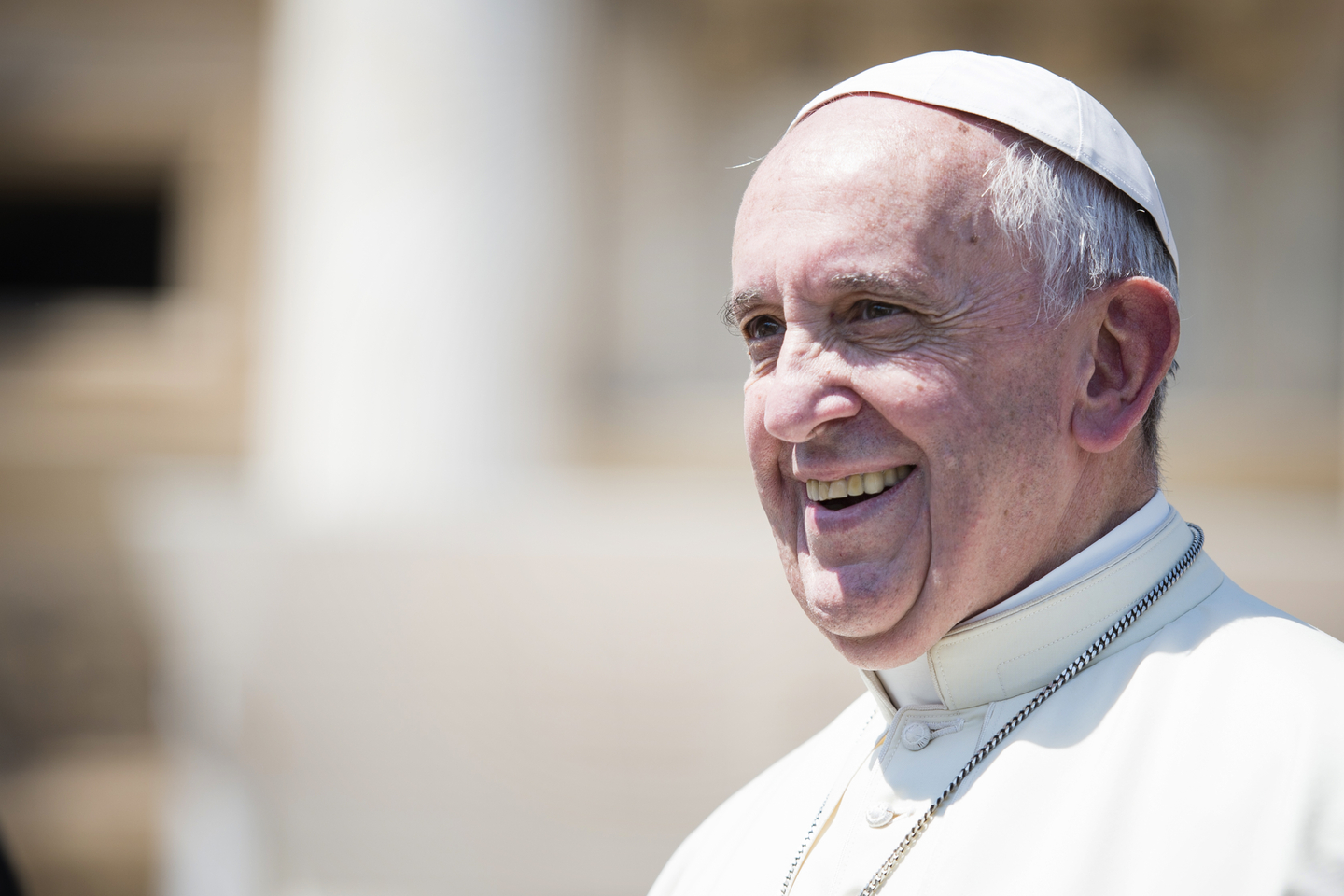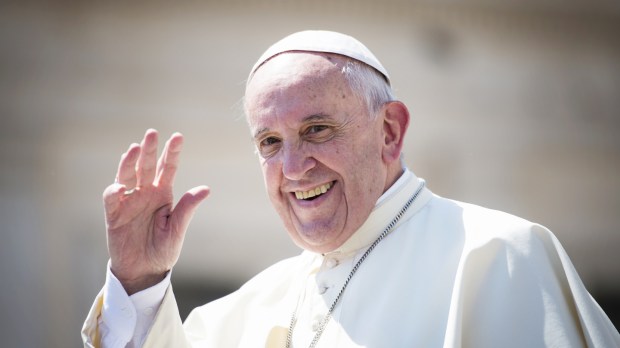VATICAN CITY — Pope Francis on Wednesday continued his series of catecheses for the Holy Year of Mercy, turning to Jesus’ parable of the Good Shepherd. The Lord uses the image of the shepherd who leaves his flock to go in search of one lost sheep to express God’s closeness to sinners, he said, for God does not want even a single person to be lost.
Here below we publish an English translation of the Pope’s address.

Dear brothers and sisters,
Good morning. We are all familiar with the image of the Good Shepherd who carries the lost sheep on his shoulders. This image has always represented Jesus’ concern for sinners and the mercy of God who does not resign himself to losing anyone. Jesus tells the parable to make people understand that his closeness to sinners should not scandalize, but on the contrary, arouse in everyone a serious reflection on how we live our faith. The account depicts, on the one hand, sinners who approach Jesus to listen to him; and on the other, the doctors of the law, the suspicious scribes, who move away from him on account of his behavior. They move away because Jesus draws near to sinners. They were proud, they were arrogant, they were self-righteous.
Our parable turns on three figures: the shepherd, the lost sheep, and the rest of the flock. The one who acts, however, is only the shepherd, not the sheep. The shepherd is therefore the only true protagonist, and everything depends on him.
The parable opens with a question: “What man of you, having a hundred sheep, if he has lost one of them, does not leave the ninety-nine in the wilderness, and go after the one which is lost, until he finds it?” (Lk. 15:4). It is a paradox that leads people to doubt the shepherd’s actions: Is it wise to leave the ninety-nine for only one sheep? And what is more, not even in the safety of the sheepfold, but in the wilderness? According to the biblical tradition, the wilderness was a place of death, where it is difficult to find food and water, without shelter and at the mercy of wild beasts and thieves. What can ninety-nine poor defenseless sheep do?
The paradox then continues saying that the shepherd, having found the sheep, “lays it on his shoulders, goes home, calls together his friends and his neighbors, saying to them: Rejoice with me” (v.6). It seems, then, that the shepherd does not return to the wilderness to retrieve the whole flock! In reaching out to the one who was lost, he seems to forget the other ninety-nine. But in reality it is not so. The teaching which Jesus wishes to give us is rather that none of the sheep can be lost. The Lord cannot resign himself to the fact that even one single person be lost. God’s way of acting is like someone who goes in search of his lost children, to then celebrate and rejoice with everyone on having found them. It is an unstoppable desire: Not even the ninety-nine sheep can stop the shepherd and keep him closed in the sheepfold.
He could reason it out this way: “I will take stock: I have ninety-nine of them, I lost one, but it is not a great loss.” Instead, he goes in search the one, because each one is very important for him, and that one is the most in need, the most abandoned, the most discarded; and he goes after it.
Let us all be advised: Mercy towards sinners is the style with which God acts, and to such mercy he is absolutely faithful. Nothing and no one can distract him from his will to save. God is not familiar with our current throwaway culture; this has nothing to do with God. God does not discard any person; God loves everyone, he searches for everyone: one by one! He does not know the phrase, “throw people away” for he is all love and all mercy.
The Lord’s flock is always on a journey: it does not possess the Lord. It cannot deceive itself into believing it can imprison him in our plans and strategies. The shepherd will be found wherever the lost sheep is. The Lord should therefore be sought where he wants to find us, not where we claim to find him.
In no other way can the flock be gathered than by following the path traced out by the mercy of the shepherd. While he is searching for the lost sheep, he causes the ninety-nine to take part in reunifying the flock. Then not only the sheep carried on his shoulders, but the whole flock will follow the shepherd to his home to celebrate “his friends and neighbors.”
We ought to reflect often on this parable, because in our Christian community someone is always missing and has left, leaving his place empty. Sometimes this is discouraging and leads us to believe that it is an inevitable loss, an incurable disease. It is then that we run the rick of closing ourselves into the sheepfold, where there will be no smell of the sheep, but the stink of being closed! And Christians? We must not be closed, because we will stink like closed things. Never! We need to go out and not be closed in on ourselves, in small communities, in parishes, regarding ourselves as “the righteous.” This happens when missionary impulse that leads us to meet others is missing.
In Jesus’ eyes, there are no sheep that are lost forever, but only sheep needing to be found. We must understand this well: for God no one is definitively lost. Never! Until the last moment, God is searching for us. Think of the good thief; but only in the eyes of Jesus is no one definitely lost. The perspective, therefore, is entirely dynamic, open, stimulating and creative. It urges us to go out searching, and to embark on a path of brotherhood. No distance can keep the pastor away; and no flock can renounce a brother. Finding those who are lost is the joy of the shepherd and of God, but it is also the joy of the entire flock! We are all sheep who are found and gathered together by the Lord’s mercy; called, together with him, to gather the entire flock!
Translation by Diane Montagnaof Aleteia’s English edition.

